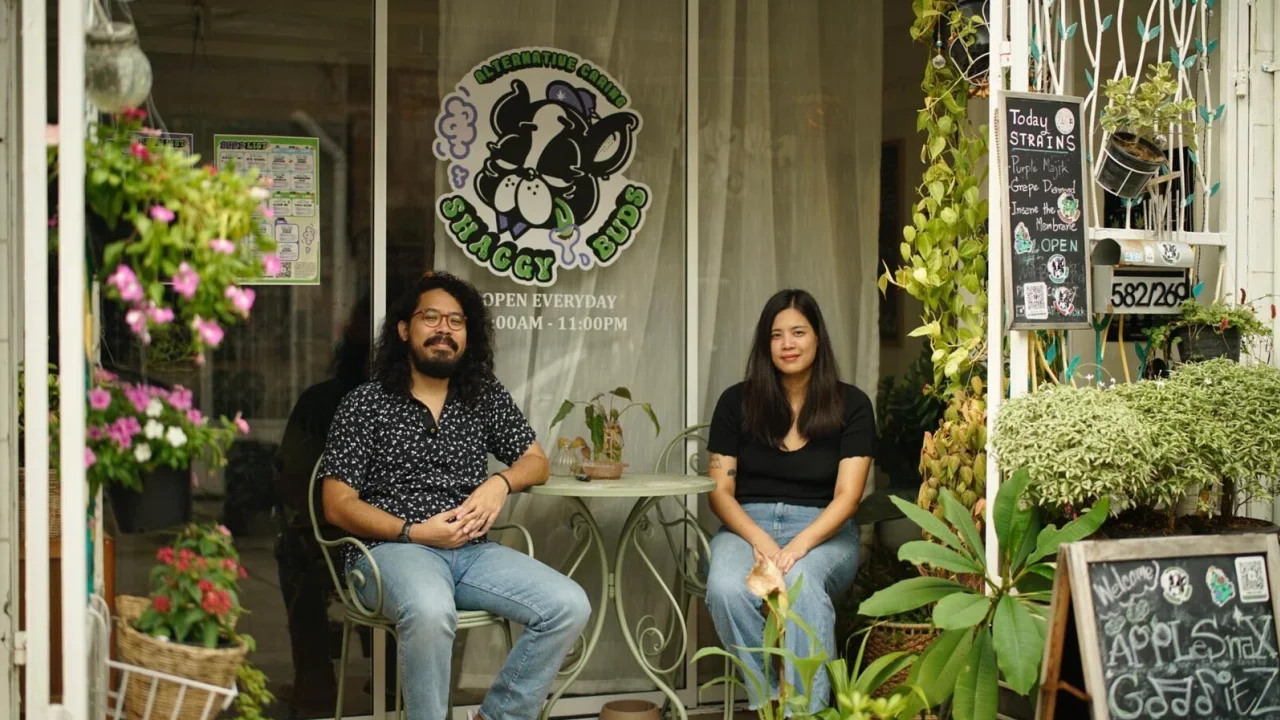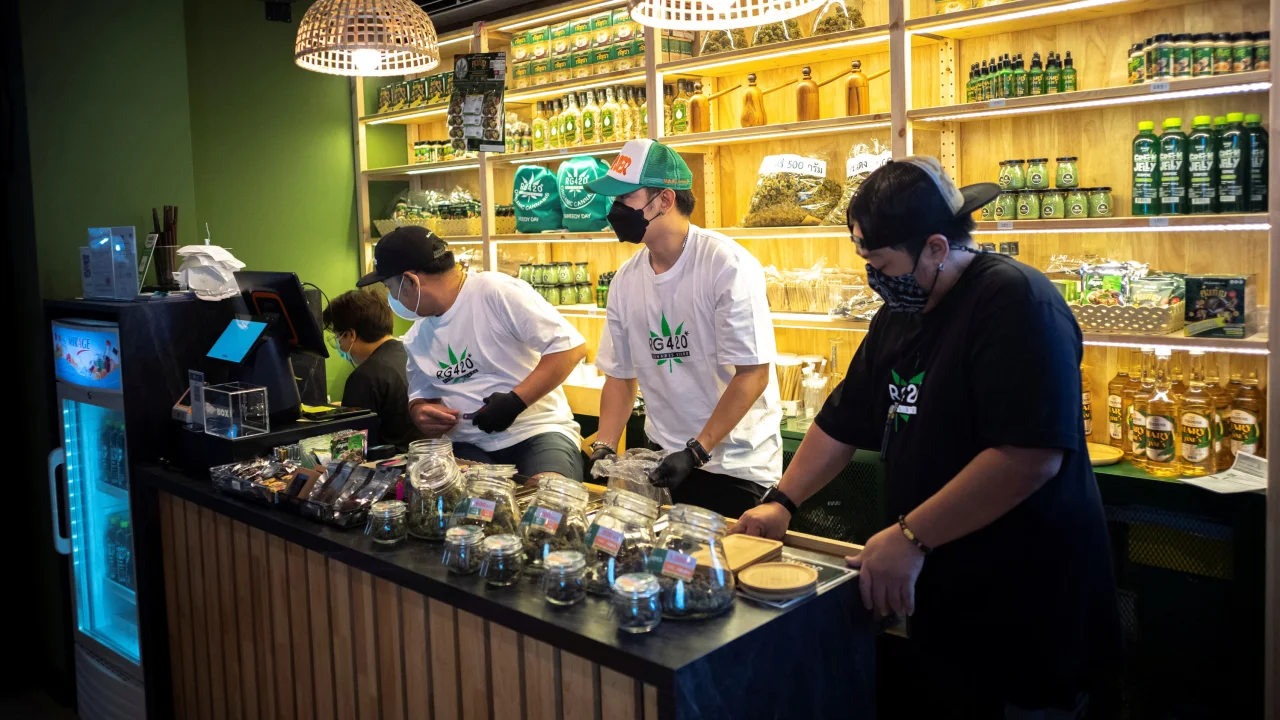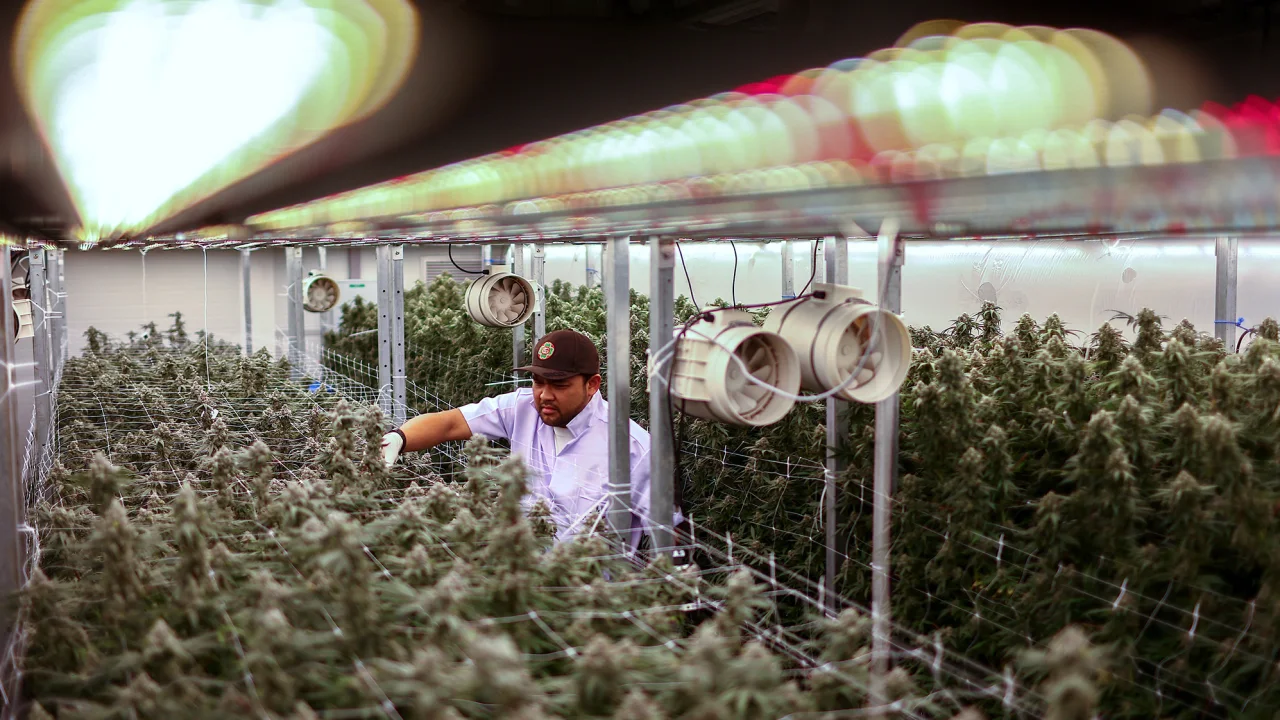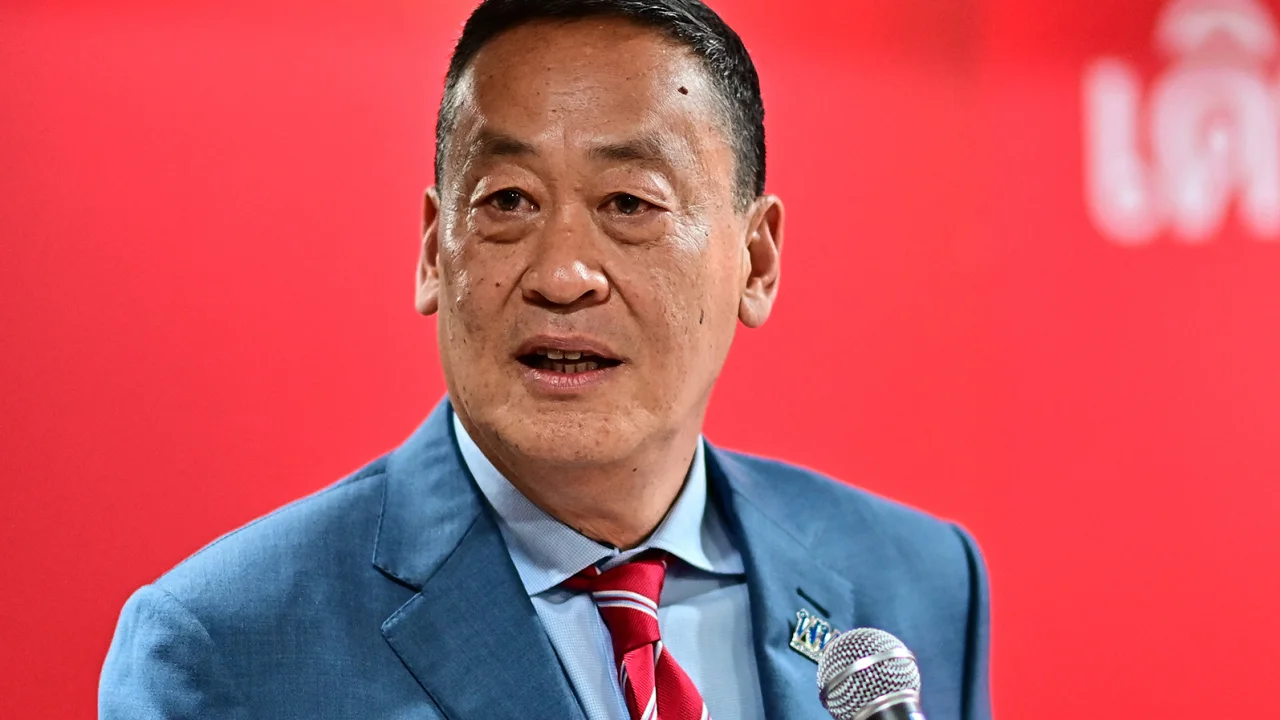News
Why Thailand’s Having Second Thoughts About Decriminalizing Cannabis
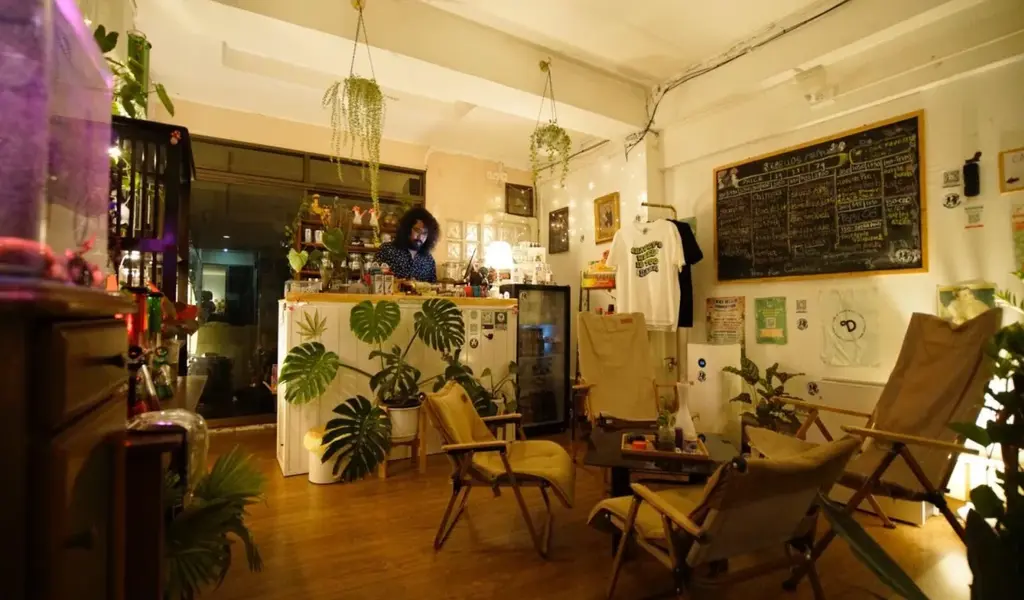
(CTN News) – Wassaya Iemvijan didn’t always want to open a cannabis dispensary. The former lawyer in Bangkok, Thailand, initially used the plant as “alternative care” to alleviate stress and calm her nerves.
I was depressed for a long time,” Iemvijan stated. “Marijuana helped me… We took advantage of the legalisation by opening a shop.
On June 9th, 2022, two days after Thailand legalised recreational marijuana use for the first time in Southeast Asia. Nitikrist Attakrist, Iemvijan’s spouse and fellow lawyer, applied for a permission to cultivate and sell the plant.
In his profession, “we were under a lot of stress as lawyers,” Attakrist admitted. “We didn’t intend to open a cannabis store, but we did, and we wanted to educate people on how to maximise the positive effects while mitigating any negative ones.”
There has been a “green rush” in Thailand over the past year, with cannabis outlets opening in major and minor places alike.
It has always been possible to obtain cannabis in the country, but at some risk.
The renowned Golden Triangle, one of the world’s most productive drug production regions, is located in northern Thailand. However, despite this, individuals caught with cannabis faced severe penalties.
However, things shifted after cannabis was no longer illegal. As likely as they were to meet the pungent aromas of street food, tourists to Bangkok’s famous Khao San Road or the bougie areas of Thonglor were likely to face the waft of cannabis. Weed festivals were held in cities like Chiang Mai.
However, that may all be about to alter.
A little over a year after cannabis decriminalisation, there are concerns Thai law may be changed after an election brought a more conservative coalition government to power.
In an interview with Bloomberg TV, newly minted Thai Prime Minister Srettha Thavisin said his government would aim to “rectify” the law on cannabis within the next six months, implying that the plant would stay lawful exclusively for medical use.
Recently, the drug problem has been most pervasive in Thailand’s northern and northeastern regions. And, as Thavisin put it, “we don’t need another problem on top of that.Rewriting the law is necessary. It must be fixed immediately. We may have that restricted to medical use only,” he continued.
The future of Iemvijan and Attakrist, along with the hundreds of other cannabis-related businesses, pot cafés, and dispensaries that have launched in the past year, is uncertain.
However, prospects are dim.
“Cannabis has helped many Thais – from farmers to small business owners and workers behind the counter, and any U-turn policy will be the worst decision ever,” added Attakrist.
“We are strongly against any legislation that could hurt the industry.”
Although the use of marijuana for medical purposes has been permitted in Thailand since 2018, decriminalisation in 2022 removed all criminal penalties associated with the industry.
The 2022 amendment permitted for the sale of cannabis-infused foods and beverages at licenced establishments, provided that these items contained less than 0.2% tetrahydrocannabinol (THC), the principal psychoactive ingredient in cannabis.
However, the Public Health Act of Thailand still imposes severe penalties on people found smoking marijuana in public, including up to three months in jail and a fine of $800.
Thai Health Minister Anutin Charnvirakul previously told CNN just before the decriminalization in June, “There has never once been a moment that we would think about advocating people to use cannabis in terms of recreation – or use it in a way that it could irritate others.”
In a country where enforcement of rules and the letter of the law can be spotty, much of the weed on the market is actually much stronger than 0.2% THC.
An increase in the public’s use of the plant has been noted, with some attributing it to the law’s fuzziness.
According to pot shop owner and Phuket resident Ley Singdam, “there hasn’t been a clear divide between smoking medical marijuana and getting high,” which has contributed to the surge in recreational smoking.
But Ley, like many business owners, thinks it’s too late to put the genie back in the bottle.
Ley argued that the government was mistaken if it thought reforming the Drug Control Act would reduce drug abuse.
Even if the government’s planned crackdown on recreational usage doesn’t deter consumers from smoking cannabis, it will certainly have a devastating effect on small enterprises, according to Attakrist.
He thinks the Thai government is ultimately to fault for the situation. He claims that his dispensary is typical of the cannabis industry as a whole, in that they have always been conscientious about checking customers’ IDs and informing them of the law.
Although the consequences of cannabis are less severe than those of alcohol and tobacco, Attakrist emphasised the need of following the law in Thailand. “From the get-go, the administration should have been more prepared. They did a poor job.
As the author puts it, “they created this legal vacuum and right now they are trying to push the burden on to the business owners and cannabis communities.”
Experts warned CNN that farmers, many of whom have shifted to producing cannabis from more traditional cash crops like rice, will also be severely impacted.
Kitty Chopaka, a cannabis entrepreneur based in Bangkok, said, “The industry has supported and created a lot of jobs for Thais, especially in rural areas,” and that she knew “many parents who were able to send their children to better schools.”
“In the end, it’s up to the people to decide. To paraphrase what Chopaka said, “I don’t think any other law in Thailand’s history is as big as this.”
“We’re talking about an industry that has medical and recreational uses, that’s ingrained in Thai tradition and culture, that impacts people’s ability to make a living, and that has significant long-term implications.”
“Prioritising medical marijuana while outlawing adult use was a common starting point for governments, but it would restrict the potential growth of the industry,” said Michael Zaytsev, a cannabis business consultant based in New York and the academic director of LIM College’s cannabis bachelor’s degree programme.
“Hundreds of millions of dollars are being spent by tourists in a short amount of time,” Zaytsev added, and “thousands of cafes, stores, and other cannabis businesses have sprouted.”
As he put it, “navigating this complex, high risk and high reward industry is not easy,” and “regulatory risk can pose significant and even existential threats to cannabis industries.”
“The difficulty lies in striking a balance between oversight and encouragement.”
When compared to the rest of Asia, where drug prohibitions are often quite stringent, Thailand stands out. The death penalty is still in effect in several nations, such as Singapore and Indonesia, for people convicted of drug trafficking, possession, or usage.
Restricting cannabis to medical purposes alone will do more harm than good, according to Gloria Lai, regional Asia director of the International Drug Policy Consortium, who pointed out that stiff penalties were also the situation in Thailand until recently.
“It is evident that prohibiting or banning substances does not eliminate them and can have the opposite effect of what was intended,” Lai told CNN. As one expert put it, “it will be devastating if Thailand’s new government returns to drug policies that have clearly failed.”
Professor Zaytsev from LIM University elaborated, “Prohibition simply does not work.”
He hoped that Thailand would not follow the lead of Singapore, where drug traffickers face the death penalty. “I sincerely hope Thailand does not go in the direction of Singapore, for example, where people are executed for trafficking cannabis,” he stated.
It is unclear what legal changes Srettha Thavisin and his coalition government intend to implement.
His Pheu Thai Party, which ran on a platform of repealing the 2022 law, is now in government with the Bhumjaithai Party, whose leader, Health Minister Anutin Charnvirakul, has been a strong advocate of decriminalisation throughout his career in public office.
The party has long opposed efforts to reschedule cannabis as a Schedule I substance. However, it has promised to push for stricter regulation of the sector.
To return the trade from tax-paying businesses to the kind of organised crime cartels that flood Thailand and neighbouring countries with massive amounts of methamphetamine and other illegal drugs would also likely result in more people getting in trouble with the law, according to experts.
People may once again be arrested, forcefully tested for drugs, and branded criminals if criminal punishments including prison sentences are reinstated, Lai said.
Instead of making assumptions, “the Thai government should be gathering and presenting data so that decisions are based on evidence.”
Iemvijan claims that business has been solid so far despite the unknown future.
She also noted that the timing of the issue is unfortunate given the rising standards of cannabis grown locally.
Thai marijuana has steadily improved in quality in recent years. Compared to the past, “it is much cleaner and safer now,” Iemvijan remarked.
It’s a difficult situation in Thailand right now… “However, most small businesses like ours are not opposed to new rules if they are within reasonable frameworks and easy to comply with,” she noted.

